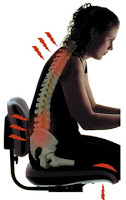Pinched nerves, a common yet often misunderstood condition, occur when undue pressure is applied to a nerve by surrounding tissues, such as bones, cartilage, or tendons. This pressure disrupts the nerve’s ability to function properly, leading to a range of symptoms including tingling, numbness, pain, and weakness. These symptoms not only signal the presence of a pinched nerve but also highlight the body’s distress signal, indicating that something is amiss. Understanding the causes behind pinched nerves is crucial, as various factors such as herniated disks, bone spurs, and repetitive motions can contribute to this condition. The complexity of pinched nerves necessitates a comprehensive approach to treatment and care, beginning with an accurate diagnosis and followed by effective management strategies tailored to each individual’s needs.
For many, managing the symptoms of a pinched nerve begins in the comfort of their own home. In-home care plays a pivotal role in the initial treatment of pinched nerves, offering a practical and accessible way to alleviate symptoms and prevent further injury. This approach is particularly beneficial for individuals requiring elder care or those managing chronic conditions like dementia, where familiar surroundings can enhance the effectiveness of care and reduce the stress associated with treatment. In-home care strategies may include rest, the application of ice to reduce inflammation, and the use of over-the-counter medications to manage pain. These measures, when combined with professional guidance, can form the foundation of a comprehensive treatment plan aimed at relieving the discomfort caused by pinched nerves and improving overall quality of life.
General Approach to Pinched Nerve Treatment
The treatment for a pinched nerve typically involves rest, ice to reduce inflammation, medication to relieve pain and swelling, and physical therapy to strengthen the affected area and prevent future injuries. These treatments can often be administered as part of an in-home care regimen, making it easier for individuals, especially those in elder care or managing conditions like dementia, to receive effective care without the stress of frequent hospital visits. Preventing pinched nerves is also an essential aspect of care, involving stretching, maintaining good posture, and avoiding repetitive motions that could strain the body.
Specific Conditions Related to Pinched Nerves
Pinched nerves can occur in various parts of the body, leading to conditions such as lumbar radiculopathy, or sciatica, which causes sharp pain that radiates down the leg. Cervical radiculopathy involves a pinched nerve in the neck, resulting in arm pain and hand numbness. Carpal tunnel syndrome and cubital tunnel syndrome, pinched nerves in the wrist and elbow, respectively, lead to tingling and weakness in the hand. Tarsal tunnel syndrome, a pinched nerve in the foot, manifests as burning pain and numbness. Each of these conditions requires targeted treatment approaches to alleviate symptoms and improve function.
Informational Insights on Pinched Nerves
The anatomy of a nerve and how it functions is fundamental to understanding how a nerve becomes pinched and the resulting symptoms. Nerves are critical components of the nervous system, transmitting signals between the brain and the rest of the body. When a nerve is pinched, these signals are interrupted, leading to the symptoms associated with this condition. Diagnosing a pinched nerve often involves a physical exam and imaging tests to identify the source of compression. Understanding the risks and complications associated with pinched nerves, such as long-term nerve damage, is essential for seeking timely and appropriate treatment.
Alternative treatments, such as acupuncture and chiropractic care, offer additional options for managing pinched nerve symptoms. These treatments can be particularly beneficial for those looking for non-invasive options or complementary therapies to traditional medical treatments. For individuals receiving in-home care, these alternative therapies can often be integrated into their care plan, providing a holistic approach to managing their condition.
Conclusion: Navigating the Challenges of Pinched Nerves with Comprehensive Care
In navigating the complexities of pinched nerves, it becomes evident that a multifaceted approach to treatment and care is essential for effective recovery. Beyond the initial steps taken through in-home care, such as rest, ice, and medication, lies a broader spectrum of therapeutic options designed to address the root causes and alleviate the symptoms of this condition. Physical therapy, for instance, plays a critical role in strengthening and stretching the affected areas, promoting healing and preventing future occurrences. Moreover, for individuals experiencing more severe or persistent symptoms, advanced treatments like acupuncture or chiropractic care offer alternative avenues for relief. These methods, particularly when tailored to the individual’s specific needs and circumstances, can significantly enhance the recovery process, offering hope and improved functionality to those affected by pinched nerves.
Furthermore, the journey toward overcoming pinched nerves underscores the importance of prevention and education. Understanding the anatomy of nerves, recognizing the early signs of compression, and taking proactive measures to avoid risk factors are key steps in safeguarding against future issues. For those in specialized care settings, such as elder care or individuals requiring in-home support due to conditions like dementia, the integration of preventive strategies into daily routines can be particularly beneficial. Stretching exercises, ergonomic adjustments, and lifestyle modifications are all valuable tools in the prevention toolkit. Ultimately, by combining informed, proactive care with a comprehensive treatment strategy, individuals can navigate the challenges of pinched nerves, achieving not only relief from pain but also a greater sense of control over their health and well-being.



